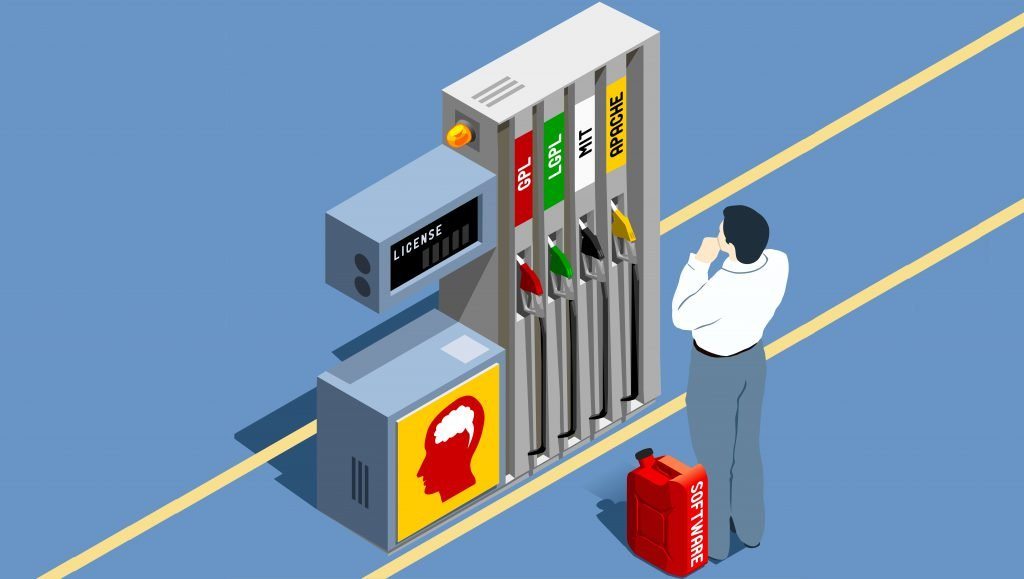Open source is cool. But when it comes to FTP client solutions, it may be hip to be square. Here's why proprietary software might be best for your company.
It's easy to understand why open-source projects are so popular versus proprietary software. Programmers love it because, well, it's open-source code. You can sit down and read the source code, and, if you like, you can tweak the code to do exactly what you want it to. Upper management loves open source because it is affordable and there is no vendor lock-in. Everyone loves open source software because it comes from a user and developer community, instead of a faceless company. Ultimately, there are pros and cons.
When it comes to FTP clients, there are plenty of open source options, but how do proprietary vs open source solutions compare? There are many benefits of using paid FTP client solutions vs. open source solutions, and vice versa, so let’s compare. It's more than just getting free software.
Communities Don't Make Service Calls
Despite the proliferation of open source clients like FileZilla, proprietary solutions for FTP clients options have not gone away, which suggests that closed-source FTP and SFTP solutions must have something going them. And they do.
In short, the argument for a closed, proprietary solutions is that someone — namely the vendor — stands behind it, despite not sharing the source code. When you pay for software, you aren’t just paying for the software; you're paying for support as well. You can rest assured that most of the troubleshooting comes from the vendor's end, so you don't have to worry about spending hours fixing every issue internally or wait for the open-source software community to respond.
With open-source solutions, there's no 1-800 number to call when something goes wrong, and you need support. Though they may try to be helpful, it's not up to the open-source community to resolve your problems. Even if there were a support line, there would be no one on the other end of the line whose actual job is to help you out of your jam. If anything, you'd probably end up providing open-source development with requests for bug fixes and features, or you could dive into the open-source code yourself. Or you could wait on the open-source developers to respond. With closed source, the vendor is taking care of it.
I know... this isn't exactly a ground-breaking argument. This debate (and service-provision challenge) has been around since the open-source software revolution began. However, as Ben Kepes argues in Forbes, the issue isn't just about service calls. Although some of the most important open-source technology, such as Linux, originated essentially as hobby projects, open-source software doesn't just come out of nowhere, nor are they derived purely from enthusiasm. Also consider that open-source Linux made way to proprietary systems like Red Hat.
Open source is an ecosystem, and most of it is eventually monetized in one way or another. Open source is often used to speed up the development of proprietary toolsets or to encourage the growth of a user base for such proprietary offerings. The building blocks may be free, but the completed tool, ready for use, still comes at a cost.
Support When You Need It

The need for service calls, or their equivalent, isn't the only argument for a business partner who can stand behind their solution. According to Sys-Con Media, the managed file transfer market is growing rapidly, not just in volume but in complexity.
Moreover, because an FTP client is a critical segment of the security chain, complexity means compliance and certification issues. When it comes time for a compliance audit, a business partner who can stand behind the solution you're using is a very good thing to have. FTP client security demands also lead right to exacting, specialized technologies such as encryption, which need to be done right—the first time and every time.
Open-Source vs. Proprietary Software Debate
Moving valuable files is not altogether unlike moving valuable physical goods. If you do a lot of file transfers, you are in the high-value trucking business, which means that you have two basic choices: hire a transportation outfit to handle your file-transport needs, or else start your own transport division and do the job yourself.
Which is preferable? The answer depends mostly on your unique capabilities and value proposition. Is file transfer so close to the core of your business that you want to do it your way, or even offer an FTP client solution to your customers? If so, you probably want to build your own solution, and open source is a great place to go for the building blocks.
However, if file transfers are merely a necessary part of your business, but not something your developer shop wants to delve into directly, then do-it-yourself solutions are probably not for you. In that case, paying a trusted closed-source vendor to handle the headaches for you is likely the way to go.
Another important consideration in choosing open sourced FTP clients vs. a proprietary is whether or not you work in a regulated industry. FTP servers are inherently insecure, so using an open source solution will probably not do you any favors when the auditors start snooping around your server room. If you choose the FTP route, you must make sure you are using SFTP or FTPS rather than a basic FTP server. Basic FTP is only password protected and doesn’t encrypt data over the wire.
Related: File Transfer Protocol (FTP) Vs. Managed File Transfer (MFT)
Additionally, FTP servers that are moving sensitive data can be a compliance nightmare if you don’t set them up correctly. During an audit, auditors will want logs and any information related to any FTP connections that are moving sensitive data, so if you are using an open source solution, chances are the auditors will be suspicious of the setup.
If you work in a regulated industry, you need a solution that you can stand by with confidence, and it doesn’t hurt if the solution is from a trusted vendor that is confident in their solution as well.
Which is the Best Open Sourced FTP Client?
So maybe you’ve now decided that you can get by with just an open source solution? There are many to choose from.
Filezilla is probably the most well-known open source FTP client out there. The most significant feature of FileZilla is that it is cross-platform meaning you can use it on Windows, Mac, or Linux. It’s lightweight and portable which makes it easy to implement on the go.
Another open source FTP solution that comes to mind is WinSCP. WinSCP has become popular over FileZilla in that it doesn’t go out of its way to install adware on your machine. However, unlike FileZilla, WinSCP is only compatible with Windows if you couldn’t tell by the name.
Which is the Best Proprietary FTP Client?
WS_FTP by Ipswitch is the oldest and most trusted vendor-backed FTP client out there. WS_FTP Server has a proven track record of reliability and security, having transferred and protected the most confidential information in security sensitive industries for over 20 years. The client program is easy to use and even includes drag and drop of files.
WS_FTP’s advanced security features include 256-bit AES encryption, SSH transfers, Secure Copy (SCP2), file integrity, SMTP server authentication, SSL certificate support, an SSH listener option, login authentication encryption, digital certificate management, and mutual authentication of server and clients.
Also Consider Managed File Transfer
Managed file transfer (MFT) is a purpose-specific class of middleware focused on the reliable transfer of files between business parties, using simple, secure protocols and easy-to-understand models of exchange. It’s fortified with secure encryption, manageability, scalability, file processing, integration, and business-reporting options that allow IT to deliver more sophisticated, controlled file-transfer solutions without slipping into the custom-code abyss.
Our managed file transfer solution, Ipswitch MOVEit, lets you manage, view, secure, and control all file transfer activity through a single system. MOVEit reduces the need for IT hands-on involvement and allows for user self-service as needed. It provides the perfect solution for secure file transfer to meet security and compliance needs in any industry and company size while reducing administration time and costs.
